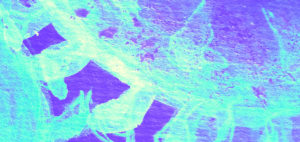Psychologist Toby Watson on the Lies of the Psychiatric Industry

Dr. Toby Watson is a psychologist who is trying to spread the truth about his industry:
A person suffering from psychological or behavioral problems has often been emotionally wounded, violated and or not provided the unique sensitivity and skill set required for their particular emotional or educational experience and sensitivity. For every individual struggling with attention, behavioral inappropriateness, anxiety, sadness or poor thought control, there is a unique and meaningful explanation that needs to be explored and cultivated. Through this process, an individual does change.
True healing comes from restoring and renewing the things that define and reflect our humanity, such as intimacy, community, art, music, patience, spirituality and play. Often adults need to recognize sensitivities and skill set lapses that were conditioned. More often in our society, we need to be patient and allow the growth and change to happen with a natural growth process that is guided and taught.
Dr. Watson is trained as an analytical – behavioral clinical psychologist, with specific training and expertise related to critically analyzing mental health research as it applies to the clinical practice. He has expertise at working with severe disorders and pathology, and is an expert sought out both nationally and internationally for his knowledge about best evidence based practices as it relates to the usage and often misuse of psychotropic medications. He both provides treatment, consultation, forensic – court testimony and a full range of diagnostic evaluations.
Excerpt From Paleo Family:
More and more, psychiatric drugs are being exposed for the frauds that they are and nowhere is that more evident than with those targeting ADHD. Like depression, the cause of attention deficit and hyperactivity disorder is an enigma as Gerald Golden, who is an advocate for ADHD medication admitted in 1991, “Attempts to define a biological basis for ADHD have been consistently unsuccessful.” But that hasn’t stopped physicians from prescribing psychoactive drugs to combat it. ADHD wasn’t even mentioned in the first Diagnostic and Statistical Manual of Mental Disorders (DSM) in 1952 but when Ritalin was released three years later, it quickly became the most popular drug for the condition.
By the time DSM III was released in 1987, psychological experts had a better grasp on the condition for which they had been prescribing habit-forming stimulants for 30 years. The new listing described the condition by three symptoms: inattentiveness, impulsivity, and hyperactivity. This broad and common diagnosis has made ADHD one of the most prevalent psychiatric disorders in the United States.
But not everyone is buying what the ADHD medication manufacturers are selling. Prominent psychologist and leading expert in child development, Jerome Kagan, says that the disease is largely a fraud. In a 2012 interview he was quoted as saying ADHD, “is an invention . . . . 90 percent of these 5.4 million kids don’t have an abnormal dopamine metabolism.”
Of course, physicians don’t require that to make the diagnosis. ADHD is diagnosed through clinical assessment and observation of behavior, not brain scans or labs. Kagan says those, “fuzzy diagnostic practices,” have led to the skyrocketing increase in the prevalence. “Let’s go back 50 years. We have a 7-year-old child who is bored in school and disrupts classes. Back then, he was called lazy. Today, he is said to suffer from ADHD.
“Every child who’s not doing well in school is sent to see a pediatrician, and the pediatrician says: ‘It’s ADHD; here’s Ritalin.’”
Ritalin is the most common trade name of the central nervous stimulant methylphenidate. It works by blocking the the dopamine transporter and norepinephrine transporters (the neurotransmitters psychologists mistakenly thought were associated with depression). It produces such effects as increasing or maintaining alertness, combating fatigue, and improving attention. It also leads to adverse side effects such as fast heartbeat, chest pain, weight loss, and skin rash. Ritalin has also been reported to cause confusion, depression, hallucination, and unusual behavior.





